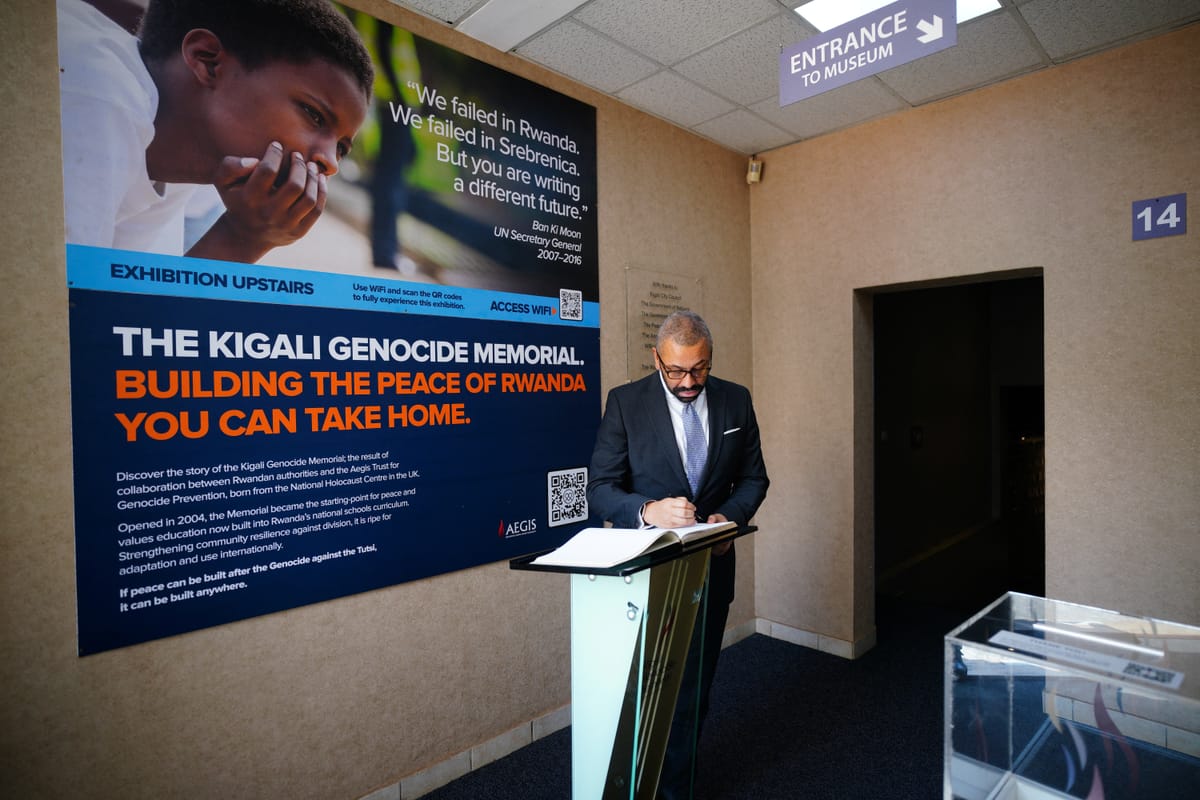The 75-year anniversary of the UN Genocide Convention
The term genocide is a relatively new one, not even coined until 1944 – partly influenced by the Holocaust but also by other targeted mass killings in history.

A few minutes every morning is all you need.
Stay up to date on the world's Headlines and Human Stories. It's fun, it's factual, it's fluff-free.
The backstory: The term genocide is a relatively new one, not even coined until 1944 – partly influenced by the Holocaust but also by other targeted mass killings in history. In 1947, the UN determined genocide as “an international crime” that calls for “national and international responsibility of individual persons and states." Still in its infancy at the time, the UN adopted its Convention on the Prevention and Punishment of the Crime of Genocide on December 9, 1948. This was one of the first humanitarian conventions from the group and the first time that genocide was made a crime under international law.
It defines genocide, and it also says that it can be committed during both war and peacetime. Under the convention, genocide is committed to purposely wipe out (either totally or partly) a national, ethnic, racial or religious group. It defines acts of genocide as killing, physically harming, bringing on destructive conditions of life, forceful birth control methods and/or forcefully removing children of the group and handing them over to another group.
More recently: In the past decade alone, there have been many instances of genocidal activities. In 2014, Daesh/the Islamic State attacked the Sinjar area of Iraq and then started what the UN generally recognizes as the genocide of the Yazidi minority group. And, international investigations were launched into the events in 2016 and 2017 against the Rohingya minority in Myanmar, with The Gambia filing a case saying the situation breached the 1948 UN Genocide Convention. The Tigrayans in Ethiopia, Hazara in Afghanistan and Ukrainians have also experienced situations that have shown risks and signs of genocide, although they haven’t been formally recognized under the Convention.
The development: On Saturday, the UN and other human rights orgs recognized 75 years since the UN Genocide Convention. This year’s event commemorating the anniversary was themed "A Living Force in World Society: The Legacy of the 1948 Convention on the Prevention and Punishment of the Crime of Genocide.” Looking back, the Office of the UN High Commissioner for Human Rights (OHCHR) says that even with the convention, genocide has continued to happen “again and again” since 1948. One of the issues when it comes to addressing more violent situations that are at risk of becoming genocidal is that the UN Security Council is hindered by powerful members with the ability to veto actions. Sometimes, voices in the Council are linked to or found complicit in atrocities, so taking action becomes even more difficult.
Key comments:
“In reality, genocide is never unleashed without warning,” Volker Türk, the UN High Commissioner for Human Rights, said in a released statement. “It is always the culmination of serious human rights violations: identifiable patterns of systematic discrimination – based on race, ethnicity, religion or other characteristics – which have been ignored. The prohibition of genocide is not an ordinary rule of international law: it is jus cogens – an overriding fundamental principle, at all times and without exception, for all humanity.”
“If you look around, you don’t need to be an expert in mass atrocity violence to recognize its prevalence,” said Kate Ferguson, the co-founding director of Protection Approaches, an NGO for preventing and responding to identity-based violence. “We face the likelihood that this violence is going to characterize the next political era. In fact, I wonder if we’re not already in that era.”




Comments ()